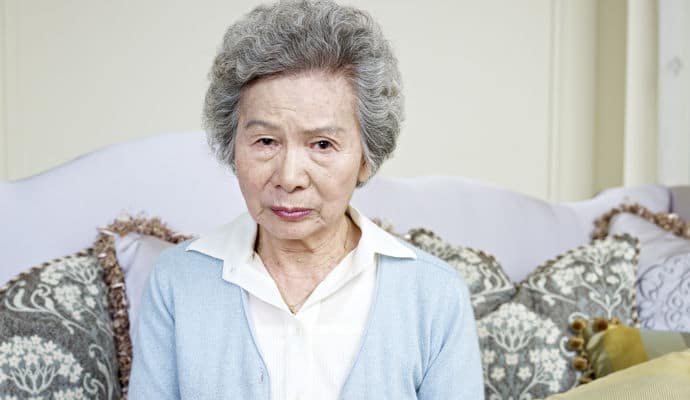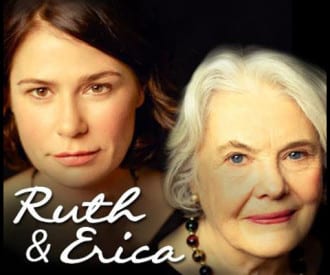Feeling unappreciated as a caregiver is an emotional burden that many struggle with silently. The long hours, constant sacrifices, and lack of recognition can leave you exhausted, resentful, or even questioning your efforts. But you’re not alone! These feelings are valid, and there are healthy ways to cope.
In this article, we share 11 practical strategies to help you manage these emotions, regain a sense of worth, and find balance in your caregiving journey. You deserve appreciation and support, and these tips can help you reclaim both.

Sometimes Caregivers Can Feel Underappreciated
Feeling unappreciated when you do so much to care for your older adult is a common issue in caregiving.
Not feeling valued can cause resentment and increase stress, eventually leading to burnout.
These feelings are a natural part of caregiving and won’t just go away on their own.
What’s important is learning to manage negative feelings to keep yourself as healthy and happy as possible.
We’ve got 11 practical ways to help you cope if you're feeling unappreciated while caring for your older adult.
Feeling Underappreciated as a Caregiver: 11 Ways to Cope
1. Understand why seniors might not show appreciation
Thinking about why an older adult doesn’t show appreciation can give you perspective on the situation and make it easier to cope.
For example, seniors who are living with severe chronic illness or pain and declining physical or cognitive abilities might be focused on their suffering. They’re less likely to be aware of your feelings and needs.
Older adults with dementia often struggle to get through the day. They may not be able to think beyond the basic tasks of living.
Or, they could feel appreciation, but not be able to express it adequately. If they’re in a more advanced stage, they might not be able to process complex concepts, such as appreciation.
In other cases, your older adult might have grown accustomed to the daily routine and no longer realize how much you’re doing and how much time and energy it takes.
It’s also possible that your older adult resents needing help.
Regardless of their actual care needs, they may feel like you’re forcing unnecessary assistance on them. This makes them unlikely to feel gratitude for what you’re doing.
2. Make self-care a priority
When you’re exhausted and stressed, it’s easy for resentment and anger to creep in and occupy your mind.
That’s why self-care is essential for caregivers – it’s not a treat or indulgence.
Taking time for yourself is what keeps you mentally and physically healthy.
It helps manage the stress and negative feelings so you can continue caregiving for the long haul.

3. Appreciate yourself and celebrate accomplishments
Celebrating your caregiving accomplishments might seem like something that others do for you, but it’s essential that you also appreciate yourself.
That’s because the way you feel about yourself and how you talk to yourself has a bigger impact than what anyone else says.
If family members can’t or won’t express appreciation for your hard work, you may have to accept their limitations and focus on self-appreciation instead.
Think of the good reasons you’ve chosen to take on this job and how much you’ve helped someone in need.
4. Reward yourself
Caregiving is by nature a thankless job. Rewarding yourself is another way to keep feeling positive about all the good you’re doing.
A reward could be anything – big or small.
Maybe it’s getting your favorite Starbucks drink once a week or buying supplies for a hobby you love.
Or it could be giving yourself permission to get respite care or hire caregiving help so you can go on a weekend getaway.
5. Use lighthearted humor to ask for appreciation
Sometimes you need to let people know that you’d like some recognition and thanks.
One way is to take a lighthearted approach and occasionally make jokes in a positive tone of voice.
For example, if your older adult praises something someone else did for them, you could use a lighthearted tone to say with a smile, “What am I, chopped liver?”
Or, after completing a task like helping them move from the bed to the chair, you might gently tease, “No need for thanks, I’m just here for the free workouts.”
6. Don’t measure your performance in terms of their health
The reality is that aging can’t be cured.
Serious chronic diseases will continue to get worse. Like the old saying goes, none of us gets out of here alive.
That’s why it’s not fair to judge yourself based on your older adult’s health or ability to recover from a health crisis.
Even the most magical, fantastic, excellent caregiver wouldn’t be able to stop their decline.
Please don’t wait for your older adult to show improvement before appreciating yourself for making their lives safer and more comfortable.
You are making a significant difference.
7. Understand why others might not show appreciation
Family or friends who haven’t done any caregiving may not understand what you do or how hard it is.
Some people have a hard time empathizing if they’ve never experienced something for themselves. That’s why they might not be appreciative of all that you do.
One way to cope is to share more information.
For example, send family members a periodic email to update them on the various tasks you’ve been managing, such as a recent medical appointment, physical therapy results, or getting new medical equipment.
When family members have a better understanding of everything you’ve been doing, they might be more likely to show appreciation or even offer to help.
8. Graciously accept thanks and appreciation
When you’ve received far less appreciation than you deserve, it’s easy to snap at someone who thanks you for something.
It might feel like their thanks is “too little, too late.”
But snapping at someone when they thank you only discourages them from doing it again.
Even if you feel like their appreciation isn’t enough, accept it graciously.
That encourages them to show even more appreciation in the future.
9. Model the behavior you’d like to see
Sometimes the best way to get thanks is to give it first. If you’d like others to show appreciation to you, start by showing appreciation to them.
If your older adult does something helpful, no matter how minor, recognize it and thank them.
For example, if they hang up the hand towel instead of leaving it on the counter, say ‘thank you. ‘
You’ll be reinforcing a positive behavior and increasing the chances they’ll thank you for something in the future.
10. Choose to do it for yourself
It’s important to remember that you have a choice and that you’ve made the decision to be a caregiver.
It may not always feel like you’re in control of that decision, but you are.
There are alternatives for your older adult if you choose not to be their caregiver. They may not be great options, but choices do exist.
When you choose to be a caregiver, it’s essential to do it for your reasons and not for appreciation or recognition from anyone else.
Remind yourself that you’ve chosen to do it, even if nobody appreciates or notices your sacrifice.
11. See it as a compliment
Unfortunately, the more capable, helpful, and reliable you are, the more likely you’ll be taken for granted.
After all, the person who gets everything done and knows exactly what they’re doing doesn’t stand out because they’re not causing problems.
This may be a small comfort, but it can help reframe the lack of appreciation as a compliment to your outstanding caregiving skills.
Recommended for you:
- Caregiver Emotions: 2 Tips for Managing Tough Feelings
- 4 Sources of Affordable Counseling Services to Reduce Caregiver Stress
- 6 Ways to Make It Easier for Caregivers to Take a Break
A version of this article was originally published on Sixty and Me
About the Author

Connie Chow
Connie was a hands-on caregiver for her grandmother for 20 years. (Grandma made it to 101 years old!) She knows how challenging, overwhelming, and all-consuming caring for an older adult can be. She also knows how important support is — especially in the form of practical solutions, valuable resources, and self-care tips.





This article on what to do when you feel unappreciated really hits the nail on the head. Unfortunately, it is so easy to start feeling this way. Thank you for bringing out the reality of how dementia patients struggle with the most basic life skills including cognitive ones and also for the importance of self-care. Everything said in this article is so true and so helpful. May it encourage all of us!
THANK YOU!
We’re so glad this article is helpful! Caregiving is a really challenging job and often isn’t appreciated enough. But it’s so important and makes such a huge difference in someone’s life when they’re well cared for. The key is to do your best to get help when needed, build a caregiving team, and care for yourself as well.
I’ve been caring for my 101 year old mother for 20 yrs. It’s been the hardest thing I’ve done in all my years. This topic ‘feeling unappreciated’ is the #1 I’ve dealt with. This post has finally helped me understand why this happens. I’ve had anger in my heart for so long but I feel relieved now. Thank you from the bottom of my heart for opening my eyes and my heart. What a relief it is. ~ Donna Harris (going crazy for my momma)
So glad this article has been helpful! It’s a challenging feeling to deal with, but so important in order to reduce the negativity and improve health and well-being.
The work is abundant and the laborers few. Every person and each situation is so unique. It’s the most difficult thing we’ve had to endure in our 50 year marriage. We pray for continued wisdom, courage and strength and are grateful for this article. Peace
We’re so glad this article is helpful and send our warmest wishes and positive thoughts 💜
My mother has been fighting diverticulitis for months, she is 89. I am the caretaker and although it is my choice, I am struggling financially now that i cannot work while she is ill. I am lucky to have both my parents at 89 and 93, however there are times when she is so nasty to me and telling untruths and hurtful things about me to whomever will listen. Logically I know anyone who knows our situations knows I’m not “waiting for her to die” but it does hurt none the less. I appreciate reading the articles and comments. I did too feel the “choice” was a bit simplistic but I get it
Thank you
I’m so sorry this is happening, it’s so tough when someone you’re helping is behaving that way.
In case it’s helpful, we’ve got an article about handling mean behavior. It’s geared toward someone with dementia who’s being hurtful, but the advice might still be useful for your situation — https://dailycaring.com/7-ways-to-respond-to-mean-dementia-behavior/
whoever wrote the article above has obviously never been a caregiver. Especially where you say remember your chose this. My sister said this once to me.. this was your decision. Seriously? and what was your decision? Not to help? I am not cut out that way. My parents need help and I am there. No decision, no questions. Simply is.
Tough and more tough. Happy to do it but tough so tough at times. No pay and you lose your real job because of it. Then what?
I’m so sorry to hear that you’re going through a tough time caring for your parents 🙁 I can certainly understand your dedication to them. Even if it’s a choice you didn’t want to make, it’s a choice to continue doing it and continue without making any changes. Sometimes even little changes can make a big difference in your mental and physical health and keep you going in the long run. Perhaps you could look into resources that would help you relieve stress and get regular breaks. Caregiving can certainly wear you down and create resentment and anger.
Since your sister has decided not to help, outside sources of help sound like they’d be more helpful. Your local Area Agency on Aging is a great place to start to get referrals and find out about local programs that could help with caregiving and maybe expenses as well. More info about the Area Agency on Aging here — https://dailycaring.com/local-community-resources-for-seniors-and-caregivers-area-agency-on-aging/
You may also find stress relief and helpful advice from a caregiver support group. Talking with people in similar situations is very therapeutic and helps you know that you’re not alone in this. Here are our favorite free, private groups on Facebook — https://dailycaring.com/11-caregiver-support-groups-on-facebook-youll-want-to-join/ We’ve also got information on how to find a local, in-person group — https://dailycaring.com/8-benefits-of-caregiver-support-groups/
If a parent has dementia, you could call the Alzheimer’s Association 24/7 helpline at 1-800-272-3900. Their family specialists are wonderful and can direct you to local resources and in-person caregiver support groups. It’s extremely helpful to connect with a community who understands what you’re going through.
In case it would be helpful, we’ve got a lot of stress relief suggestions here — https://dailycaring.com/category/caregiver-wellness/stress-relief/ We’ve also got plenty of articles that talk about how to get in-home caregiving help — https://dailycaring.com/category/daily-care/find-in-home-care/
I hope this info and suggestions are helpful and that you’ll be able to find some ways to get a little rest and care for yourself while you care for your parents.
I totally agree with you, this article doesn’t help at all. I don’t think the writer ever done a long-term caregiver. Especially when I read that why other people don’t appreciate and the writer suggested us to share / tell other people what we did. Do you really think that helps? NO!! We might get some “thank you for doing that”…. but NO!! people who said that didn’t really mean any “appreciation” at all. More times, people told me, “oh, you don’t have to do that, just get nurse / doctor / whoever to do it. You decided to do it “……Really?
It sounds like you might be feeling angry about your caregiving situation. Perhaps venting and talking with other caregivers in similar situations could help reduce stress and improve well-being. We’ve got some suggestions for online and offline groups that may be helpful:
— 11 Caregiver Support Groups on Facebook You’ll Want to Join https://dailycaring.com/11-caregiver-support-groups-on-facebook-youll-want-to-join/
— 8 Benefits of Caregiver Support Groups https://dailycaring.com/8-benefits-of-caregiver-support-groups/
You may also benefit from getting more help so you can take breaks and get time away from caregiving. Here are some suggestions that may help:
— Caring for the Caregiver: 6 Ways to Get Help and Improve Your Health https://dailycaring.com/caring-for-the-caregiver-6-ways-to-get-help-and-improve-your-health/
— When They Say No: 8 Ways to Introduce In-Home Care for Seniors https://dailycaring.com/when-they-say-no-8-ways-to-introduce-in-home-care-for-seniors/
Thank you. My husband has Lewy Bodies Dementia; it is easy to forget the needs of the person requiring care. It is exhausting to explain the “why” of a same question asled several times a day, and I have to remind myself that he has actually not assimilated the information – it was heard and forgotten.
I really appreciate the emails I get from “daily caring”, and would be happy to share experiences and thoughts with other care givers who may be facing the same challenges.
Cordially,
Susann
I’m so glad our articles are helpful! Dementia care is a tough and often thankless job. I hope these suggestions help you find some ways to cope and feel better.
We’ve also got suggestions on how to respond when he asks the same questions over and over again — https://dailycaring.com/4-ways-to-respond-when-someone-with-alzheimers-keeps-repeating-questions/